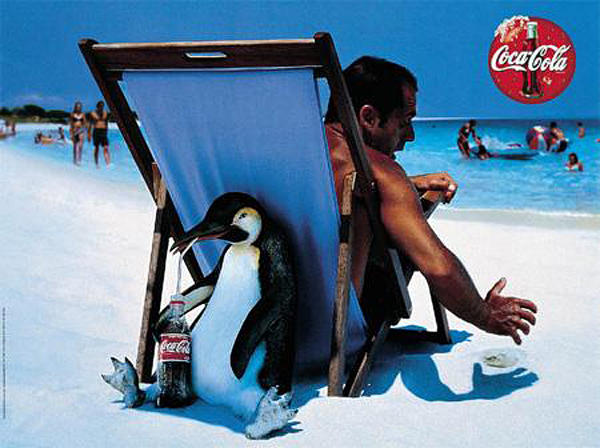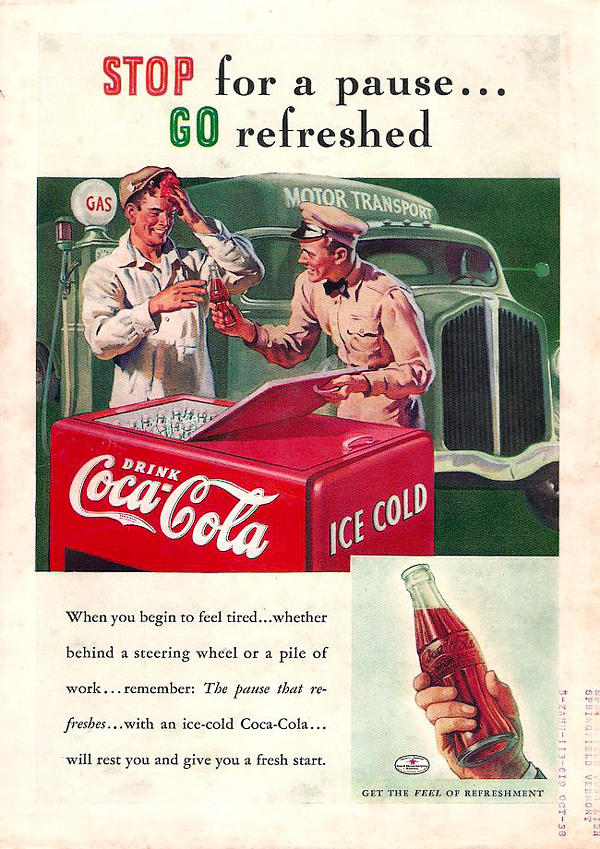Thesis statement
Typography plays as important a role in advertising as other aspects of advertising like color, shape, and location. It is the primary medium through which companies and other entities carry the message they are trying to convey to their target audience and therefore have to be significantly positioned in all adverts used.
Introduction
A definite relationship exists between typography and advertisement. A brief survey of any billboard, newspaper, poster, or any other advertisement demonstrates that typography to pass the advertisement’s information is possibly the most important aspect of advertisements of certain types. The main message that a business entity is looking to advertise often appears bold, enlarged, colored, and highlighted to ensure readers do not miss it.
Several elements come together to make a good advertisement, including color, location, design, and typography. It is naïve to assume that visual advertisements would not be without the use of text. Certain worldwide brands have established themselves so well that their logo’s appearance is all that is needed. Nike’s tick, Adidas’ three bars, Microsoft’s flag, and Apple’s apple are excellent examples of this.
This article looks at such a brand, but one that uses typography as its core element: the logo of the Coca-Cola Company. Since the dawn of the 20th century, this entity has been in existence and continues to be the best-selling beverage in the world. The Coca-Cola brand is one of the most recognizable brands in the world today. Amazingly, Coca-Cola has maintained the original taste and chemical formula of their soft drink, and the original design of its first logo as Pemberton designed it. John S. Pemberton, the founder of the Coca-Cola Company and creator of the original formula of the world’s most famous soft drink, designed the logo himself using the Spencerian script. This paper examines how typography in the creation of the design has helped the company market itself into what it is today.
What is typography?
Before further analysis of the relationship between typography and advertisement is carried out, it is important to know the proper typography definition. Typography refers to the technique – or art – of arranging type to make language clearer. Without a proper topographer, the communication that an entity wants to pass may be compromised.
What is an advertisement?
Advertising is the art of communicating with consumers using persuasive language to ensure they buy a product. Most companies often advertise their products are as the items that meet a certain need of the customer. For example, Coca-Cola has always sold its product as a refreshing beverage, hence the frequent use of ice, water bubbles, and snow to suggest freshness in its advertisements.
Understanding Coca-Cola’s advertising strategy
From the time the company was formed, a monumental effort was put in by the company’s management to ensure the marketing of their product was excellent (Keller 2000). After a pharmacist called Asa Chandler had bought all the shares of Coca-Cola in 1891, he formed the Coca-Cola Company. He began concentrating on marketing the product in as many states as was possible at the time. Soon, the sales of Coca-Cola were rising. By 1893, the company was selling 50,000 gallons a year. It soon expanded from Atlanta, Georgia to Dallas, Chicago, and Los Angeles (Bodden 2008).
The focus on marketing is a business strategy that is still at the heart of Coca-Cola’s strategic plans today. The Coca-Cola Company now focuses on maintaining the product as the world’s top beverage. It has created a cult-like aura around their product, presenting it as the only beverage that satisfies a customer and quenches thirst.
The success of Coca-Cola as a brand is centered on its logo. Coca-Cola has been able to make their logo one of the most recognizable logos in world business. The use of red and white color and calligraphic text makes the brand instantly recognizable from the business streets of New York to the dusty roads in a Kenyan village. By pushing its product to all corners of the world, Coca-Cola has created a soft drink that has remained the top-selling soft drink globally for over half a century (Loken et al. 2008).
Typography
This section analyzes the use of typography further in Coca-Cola’s advertisements. The font used in its adverts and the logo’s font shall be analyzed in greater detail. Also, the link between typography and advertising shall be discussed in greater detail. Finally, the response from viewers of Coca-Cola advertisements over the years will be sampled.
A Visual Analysis
Below are two advertisements by the Coca-Cola Company, advertising its leading beverage, Coca-Cola. The first one was a 2000 advertisement while the second one was a 1937 advert.


Similarities
Both advertisements use different skills in typography to pass their message. In the first advertisement, the only written part of the advertisement is the Coca-Cola logo, highlighted in their usual red against a blue background. The use of contrast when displaying text attracts the consumer’s eye to the product’s name first. In the second advertisement, typography plays the most important role in conveying the advertisement’s message. The main message of the advertisement is placed at the top of the poster to attract maximum attention. The product’s name is then placed on a freezer, leading the customer’s mind to associate the product with refreshment.
The second similarity is the use of color to highlight the product. Coca-Cola’s logo is textual in nature; it is important to draw the client’s attention directly to it. In both adverts, red color helps the adverts’ creators lead the customers’ eyes to the product’s name. If the font was not placed against such a contrasting background, it is easy for a customer to assume that the first advertisement is advertising a beach resort. In contrast, the second one is the advertisement for a transport company.
Difference
The main difference in the advertisements lies in the layout of the pictures. Although they both portray how coke refreshes a person who takes it, the first advertisement concentrates more on visual interpretation than a written description of its intended message. In 1937, people were not used to using pictures to advertise and therefore depended more on written explanations to get more information about a product.
Font
Type and history
The font used in the Coca-Cola logo is known as the Spencerian script. This script was named after Platt Rogers Spencer, the man credited for developing the font. By the time the Coca-Cola logo was created in 1886, America was in the middle of the ‘golden age’ of ornamental penmanship (Robinson 2001). Being one of the most successful fonts at the time, it is not surprising that Pemberton chose to use it when creating Coca-Cola’s logo.
Why the font was used
As mentioned above, the font was extremely popular at the time and was therefore used a lot by companies and individuals. According to Coca-Cola’s history records, Pemberton’s partner and bookkeeper, Frank M. Robinson, suggested that the two Cs in ‘Coca-Cola’ would look stylish if designed well. This is how the product was named. After this, Pemberton then went ahead and designed a logo using a popular font at the time. By doing so, Pemberton ensured that customers could easily recognize and continue buying his product (Coca-Cola Company 2011).
What the font does
Today, the font has been associated with Coca-Cola so much that it is not conceivable to have a different logo with a different font. The curls in the Cs and the red color that Coca-Cola uses are associated directly with the product. This font helps to create a mental link between a product and the advertisement. There have been several logos that have been created using the Spencerian script against a red background. Every time one sees this, the first thing that comes to mind is not the product being advertised by the text but Coca-Cola. The font leaves a mental imprint of the product in consumers’ minds.
Its significance in the advertisement
The main significance the font has in the advert is creating the link between the logo and the product or message. Just as in the adverts reviewed above, typography has been used to highlight the important parts of the message and put across strongly while other aspects are left to form the background of the image. The significance of Spencerian script in the Coca-Cola logo is the secret to their continued success over the years – they create a link between the advert and the product.
The link between typography and advertising
Based on the case of Coca-Cola, there are two main aspects of typography that make it a necessity in advertising. First, typography allows advertisers to pass the message they intend to clear. They do so by highlighting the text, making it bold, and placing it in a background where contrast gives maximum attention to the message. The best advertisements are those that pay close attention to the typography and organize it in a manner that best passes the message across.
Secondly, typography draws customers’ attention to a product. Using the case of Coca-Cola, the unique text in the logo is always placed against a contrasting background. Coca-Cola is always very careful not to use colors that may not be familiar with their customers, so they prefer to use the colors their customers are used to: white, black, and red. By doing so, no matter what the subject of the advertisement is, customers can see that the advert is about Coca-Cola.
Response from readers
The responses highlighted here are based on responses given by viewers of Coca-Cola advertisements from 1883 to 20081. The first aspect that stands out in their responses is their love for Coca-Cola as a brand and their admiration for good the advertisements the company always comes up with. This is a sign that most of these readers always look forward to seeing the next Coca-Cola advertisement. The general feeling of admiration towards Coca-Cola advertisements signifies that the Coca-Cola Company has been able to use the advantages of proper typography correctly.
The other aspect that stands out from their responses is a distinct connection between the advertisements and a season in their lives. This means that Coca-Cola has found a way to link seasons like Christmas, Easter, and summer to different experiences that Coca-Cola gives its customers. This signifies that Coca Cola uses typographical and visual effects to reach out and touch their customers in a personal way.
Conclusion
There is a distinct link between advertising and typography. If an advert is able to use typographical skills to convey messages correctly, there is a higher chance that customers will notice the product and purchase it. Over the twentieth century, many companies like McDonald’s, Marlborough, Ford, Nike, and others have perfected the art of using correct typographical skills to perfect their advertising. It is no coincidence that they are very successful companies.
Bibliography
Beautiful Life. 2011. “History of Coca-Cola in Ads.” Beatiful Life. Web.
Bodden, Valerie. 2008. The Story of Coca-Cola. Madison, Wisconsin: The Creative Company.
Caivano, Jose Luis, and Mabel Amanda Lopez. Chromatic Identity in Global and Local Markets: Analysis of Colors in Branding. Colour: Design and Creativity, 2007: 1-14.
Coca-Cola. Great Britain. 2009. “125 Years of Coca-Cola Logos.” Coca-Cola. Great Britain. Web.
DesignRoof. 2009. “Interesting Coca Cola Advertisements.” DesignRoof. Web.
Keller, Kevin Lane. 2000. The Brand Report Card. Harvard Business Review, 2000: 7-8.
Kemp, Martin. 2011. Christ to Coke: How Image becomes Icon. Oxford: Oxford University Press.
Loken, Peter, Amy Voytilla, Matt Bach, and Sivika Sirisanthana. 2008. Advertising and the Visual Medium. Web.
Robinson, Martha. 2001. “Developing Spencerian Penmanship at Home.” Homeschoolchristian. Web.